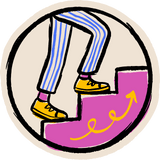


 At the end of the day, psycho-educational assessments offer valuable insight, but they’re not the
At the end of the day, psycho-educational assessments offer valuable insight, but they’re not the
solution themselves. Whether your child is diagnosed with dyslexia, ADHD, or any other challenge, the label is just a part of their story. What truly matters is how you respond as a parent and advocate for your child.
Think of the assessment as a tool—like a flashlight. It can shine a light on where the obstacles lie, but it’s up to you to help your child navigate through them. Whether or not your child has a specific diagnosis, the important thing is to recognize their unique needs and to find ways to support them on their journey.
